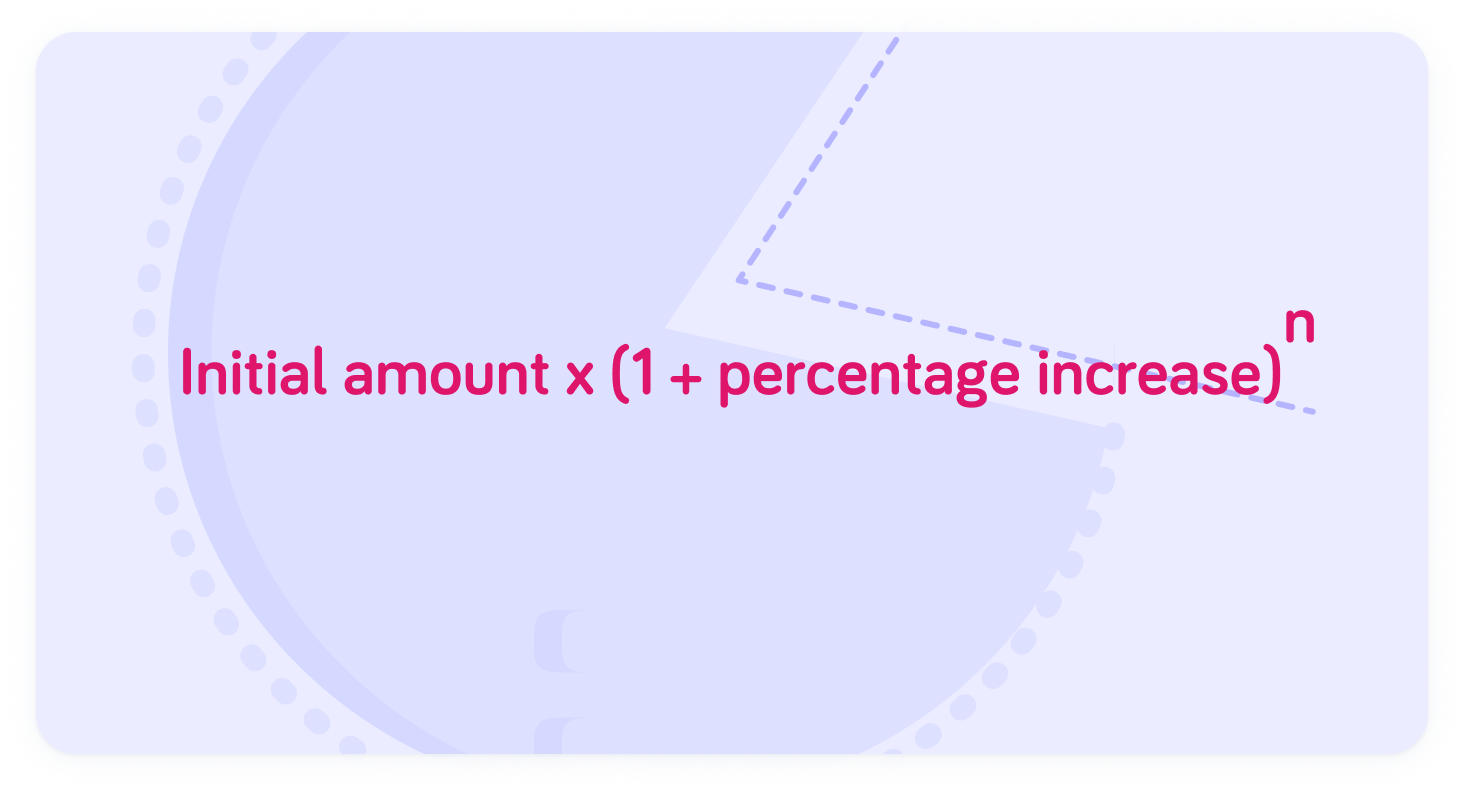YOU ARE LEARNING:
Compound Interest

Compound Interest
Compound interest is another method of percentage increase or decrease. It takes a new percentage of the new value at each interval.
Interest is when a percentage of an original amount is added on. Compound interest is when the amount of interest changes each time, as the percentage is taken from the original and all the interest to date.
This is a more common form of interest, and you will find that this is how interest is calculated on loans and credit from the bank! 💵
Which of these better describes compound interest?

For compound interest, we need to find the interest each time and add it on, then find the next bit of interest as a percentage of this new number.
For example, to find 5% compound interest on £1000 over two years:
0.05×1000=£50 So, after year 1, the total would be: £1000+£50=£1050
In the second year, we need to take 5% of the new total:
0.05×£1050=£52.50 So, after the second year, the total would be: £1050+£52.50=£1102.50
Let's try an example:
You invest £200 into a savings account which pays 2% compound interest per year. How much will you have in the account at the end of 3 years?
Convert 2% into a decimal
2÷100=0.02
Find the interest in the first year
0.02×200=£4
Add this onto the total
£200+£4=£204
Find the interest in the second year
To do this, we need to find 2% of the value we just calculated, and add it on to the total.
What is 2% of £204?

Interest in the second year is £4.08. Add this onto the total
£204+£4.08=£208.08
Now we do the same for the third year
0.02×£208.08=£4.16. Then we add this onto the total £208.08+£4.16=£212.24
Great work!
After 3 years, you would have £212.24 in the account.
House prices are going up by 4% each year. Using compound interest, what will the price of a £400,000 flat be in 3 years?

There is a faster way to work this out!
We can multiply the original amount by the percentage increase for each of the years in one sum.
This calculates compound interest in one sum
n is the time period in which interest is calculated.

You invest £100, and accrue 4% compound interest per year
Let's work out how much you will have after two years. Each year, you will have 1.04 times the amount you had in the previous year - this will go in the brackets. This occurs over two years, so the value of n will be 2.

Fill in the values in the equation
100×1.042. We are starting with £100, and adding 4% compound interest each year.

Calculate the result
100×1.042=£108.16

Julie invests £1000and her bank pays 1.3%compound interest per year. How much will she have in total in 12 years time?

Mike invests £5,000 and his bank pays 1.2% compound interest per year. How much interest will he receive in total in the first 6 years?

